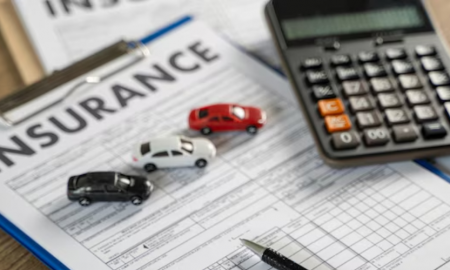
Here’s How Much Suze Orman Believes You Should Have in Your Emergency Fund

Most finance experts advise that anyone looking to get their finances in order needs to set up an emergency fund sufficient to sustain themselves over the course of 3-6 months. However, Suze Orman, a financial expert by trade and a former CNBC television host, believes the contrary.
Orman categorically challenged the experts stance during the 2017 eMerge Americas conference. She stated that 3-6 months worth of expenses was simply insufficient to make one feel financially secure. Orman is of the opinion that a couple of unexpected scenarios can occur that inhibit one’s progress. She opined that situations like being unemployed for a full year and unforeseen medical emergencies could have a toll on such meager savings.

In essence, Orman believes that a million potential scenarios could occur that could have a draining effect on one’s finances. To remedy this, one would need to have at least 8-12 months of living expenses tucked away someplace
To further support her point, Orman pointed to the Great Recession which occurred about 11 years ago. She mentioned that in 2007, many individuals found themselves jobless, those in the tech scene saw their startups take a nosedive, there were insufficient monies to invest, no one really cared about IPOs because of the dwindling markets and there was pretty much nothing else left to do. She referenced that particular moment in time to illustrate the point that for one to get back on their feet after their chief source of income was cut, months could easily go by without much happening.
Situations

Orman further went on to elaborate that it was not strictly an economic issue. Incidents like illness, car accidents and worldwide calamities could easily rock one’s progression. She added that all this plausible because of the harsh situations witnessed all around the world
For anyone to cope, Orman believes that one needs to be financially secure to cope with crisis situations. Having an emergency fund at the ready is the best way she sees individuals being able to cope with deterrents along the way.
Orman is of the opinion that one needs to have wads of money stashed in their bank account in order to feel financially secure. She said that individuals need not fool themselves into a false sense of security with notions of credit card recharges. Instead, one should have at least eight months to one year of finances.
However, she mentioned that one shouldn’t be depressed if they find themselves unable to save up. Statistics released by a recent Bankrate survey show that only a fraction of Americans, about 39 percent, have sufficient funds in the bank to cover a $1,000 emergency.
Ideas

Orman advises that individuals looking to get their emergency fund started should consider tweaking their budgets and try to find areas they can dedicate more funds to saving and investing
Ideally, one should start putting money away as soon as they can in order to take advantage of compound interest and any other interest that may accrue overtime. When this is done, whatever little money that is currently invested can end up as a lot of money invested in future dates.
Experts in the finance industry recommend individuals who are short on cash to try their hand out in the gig economy. Spending more time in a week driving an Uber, babysitting gigs on Sittercity or establishing a virtual store on Shopify to sell and resell items are some of the effective tactics one can put to good use to earn extra dough. Having a part-time activity can help oneself sustain themselves. This is because it is easier to make more money than spending less.
Those looking to make some cuts in their expenses need to properly review their budgets. Most people tend to overspend on frivolous things. Food is also another common culprit, whether it’s numerous trips to the store to buy groceries, restaurant excursions or take out orders. Websites like Einsurance are fantastic because they offer amazing deals on health, home, life and car insurance rates intended to cater for those who are not in the upper echelon of society.
More inAdvice
-
`
U.S. Reduces Tariffs on Japanese Cars to 15% Under Trump’s Deal
In a move reshaping U.S.-Japan trade relations, former President Donald Trump confirmed a new agreement that slashes tariffs on Japanese car...
August 9, 2025 -
`
Adults in Ohio Face Stricter Rules to Obtain Driver’s License
Ohio has passed a new law that will change the way adults under 21 get their driver’s licenses. Signed into law...
July 31, 2025 -
`
Gen Z Craves Career Guidance, But Their Parents Are Struggling Too
Gen Z is stepping into the future with curiosity and ambition—but they’re not doing it alone. A growing number of teens...
July 25, 2025 -
`
Do Car Insurance Companies Offer Pay-As-You-Go Plans?
Car insurance premiums often feel unfair to people who rarely drive. Yet, most traditional auto policies still charge a fixed monthly...
July 17, 2025 -
`
Why the Koenigsegg Sadair Spear Is the Ultimate Hypercar Beast
Koenigsegg has revealed a new beast—the Sadair’s Spear. Tuning its focus on raw performance and brutal speed, this hypercar marks the...
July 11, 2025 -
`
Which States Have the Safest—and Riskiest—Drivers in America?
Driving safety isn’t just about skill. It’s also about location. A recent nationwide report shines a spotlight on where drivers are...
July 4, 2025 -
`
How to Save on Tesla Car Insurance Without Compromising Coverage
Owning a Tesla often brings savings on fuel and a futuristic driving experience, but the conversation changes quickly when it comes...
June 26, 2025 -
`
10 Weird Cars That Turned Heads and Won Hearts
Some cars turn heads with speed, others with luxury—but a rare few grab your attention simply by being delightfully strange. From...
June 20, 2025 -
`
Next-Gen Jeep Cherokee Expected to Arrive by Late 2025
After a break of two years, Jeep is prepared to relaunch the Cherokee brand. The automaker confirmed the return with fresh...
June 12, 2025















You must be logged in to post a comment Login